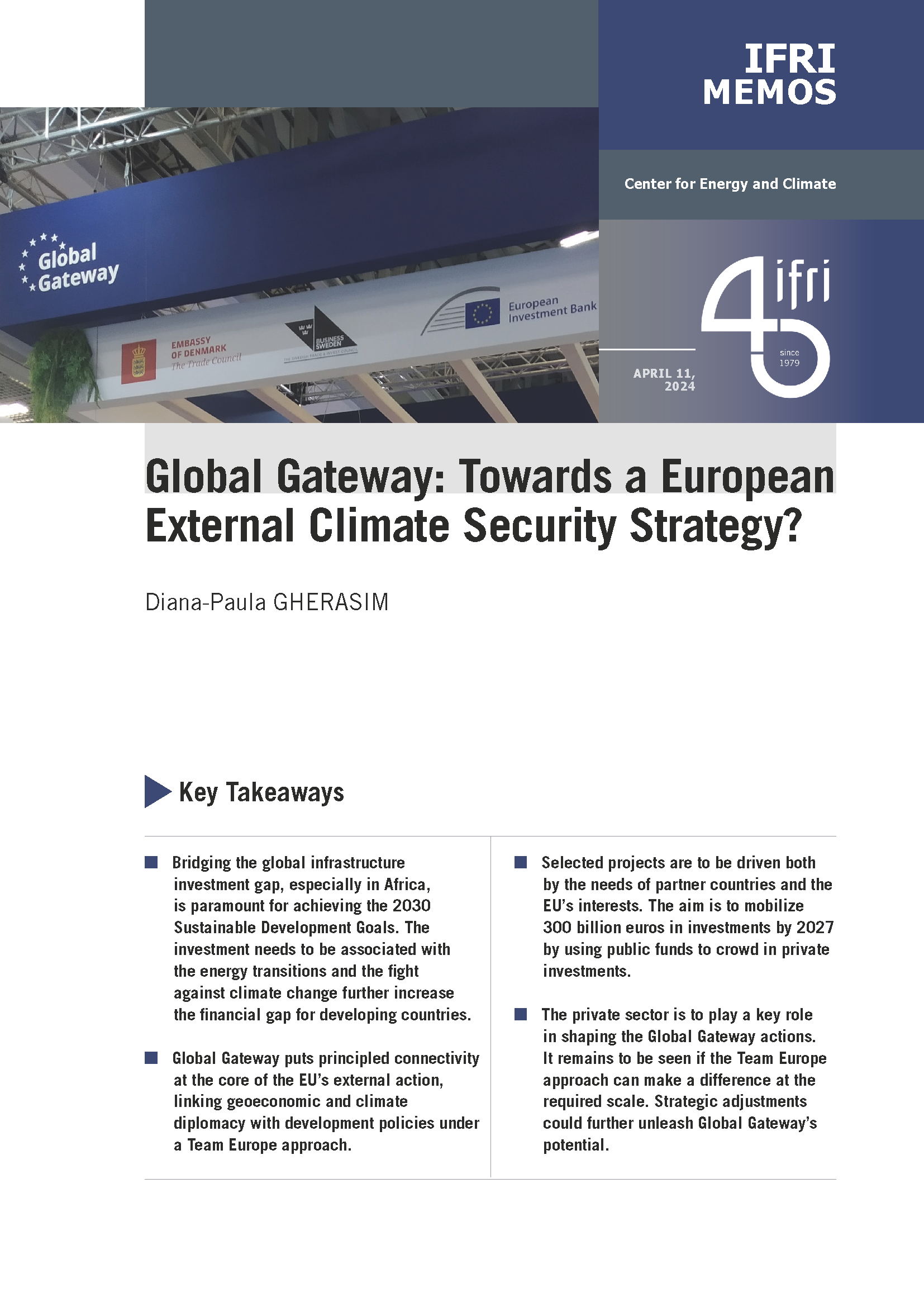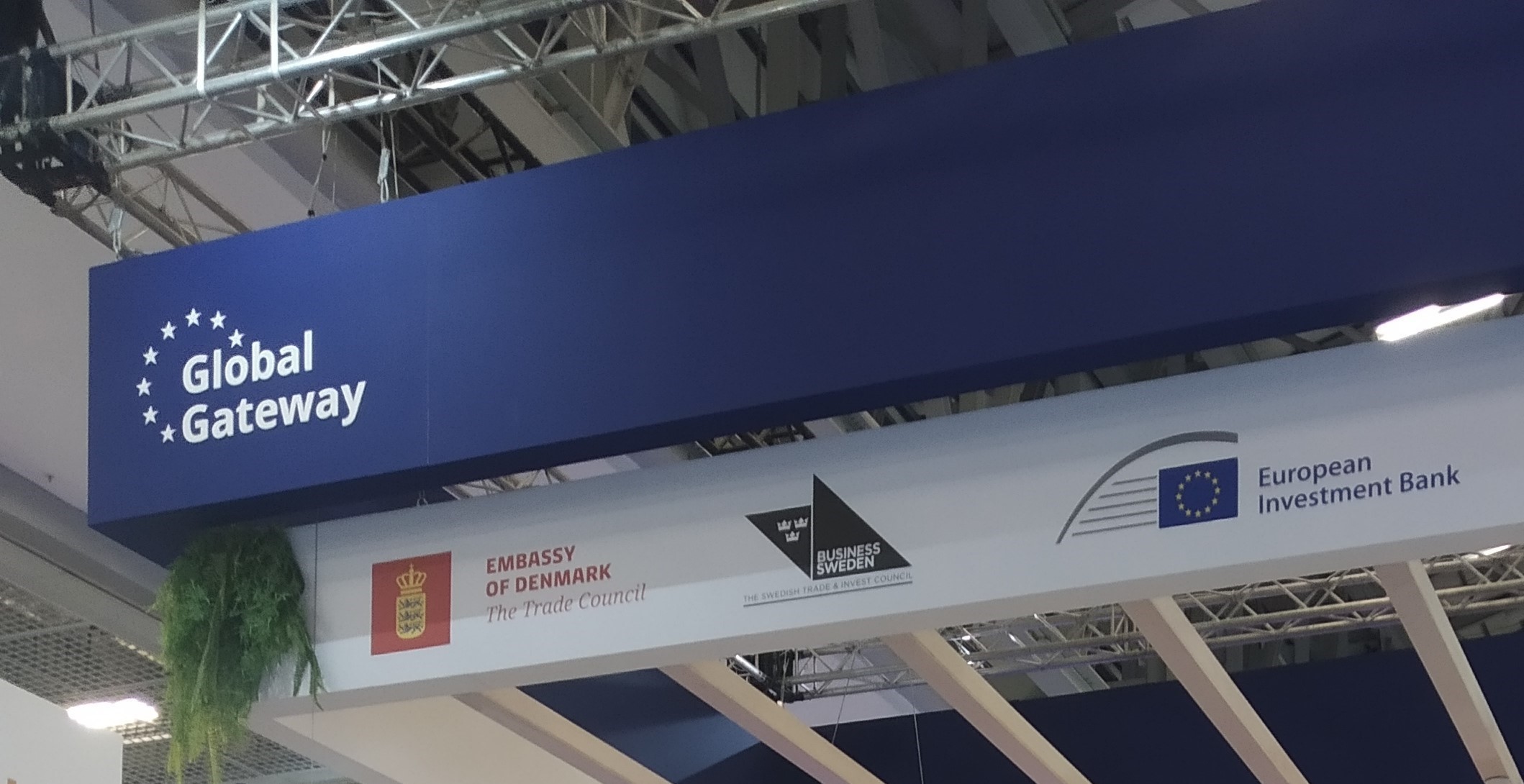Global Gateway: Towards a European External Climate Security Strategy?

Transport, energy, water and telecommunications infrastructures are vital for economic development. These infrastructures are also fundamental for the achievement of the 2030 Sustainable Development Goals (SDGs), which have suffered a setback notably due to the Covid-19 pandemic, wars, and weak economic performance. Based on the Global Infrastructure Outlook, the world needs 97 trillion dollars ($) in infrastructure investments (energy, water, airports, ports, rail, road, and telecommunications) over 2016-2040, and based on the current investment trends ($79 trillion over the given period), the cumulative global infrastructure investment gap amounts to $18 trillion.

Bridging the global infrastructure investment gap, especially in Africa, is paramount for achieving the 2030 Sustainable Development Goals. The investment needs to be associated with the energy transitions and the fight against climate change further increase the financial gap for developing countries.
Global Gateway puts principled connectivity at the core of the EU’s external action, linking geoeconomic and climate diplomacy with development policies under a Team Europe approach.
Selected projects are to be driven both by the needs of partner countries and the EU’s interests. The aim is to mobilize three hundred billion euros in investments by 2027 by using public funds to crowd in private investments.
The private sector is to play a key role in shaping the Global Gateway actions. It remains to be seen if the Team Europe approach can make a difference at the required scale. Strategic adjustments could further unleash Global Gateway’s potential.
Download the full analysis
This page contains only a summary of our work. If you would like to have access to all the information from our research on the subject, you can download the full version in PDF format.
Global Gateway: Towards a European External Climate Security Strategy?
Related centers and programs
Discover our other research centers and programsFind out more
Discover all our analysesAI, Data Centers and Energy Demand: Reassessing and Exploring the Trends
The information and communication technologies sector today accounts for 9% of global electricity consumption, data centers for 1-1.3%, and artificial intelligence (AI) for less than 0.2%. The growing energy demands of cloud services first, and now AI workloads (10% of today’s data centers electricity demand), have exacerbated this trend. In the future, hyperscale data centers will gain shares amongst all kinds of data centers and AI will probably account for around 20% of data centers electricity demand by 2030.
Unlocking India’s Energy Transition: Addressing Grid Flexibility Challenges and Solutions
India is rapidly scaling up its renewable energy (RE) capacity, adding 15–20 GW annually, but the ambitious goal of 500 GW of non-fossil capacity by 2030 is at risk unless the pace accelerates.
Europe’s Black Mass Evasion: From Black Box to Strategic Recycling
EV batteries recycling is a building block for boosting the European Union (EU)’s strategic autonomy in the field of critical raw minerals (CRM) value chains. Yet, recent evolutions in the European EV value chain, marked by cancellations or postponements of projects, are raising the alarm on the prospects of the battery recycling industry in Europe.

The New Geopolitics of Energy
Following the dramatic floods in Valencia, and as COP29 opens in Baku, climate change is forcing us to closely reexamine the pace—and the stumbling blocks—of the energy transition.










